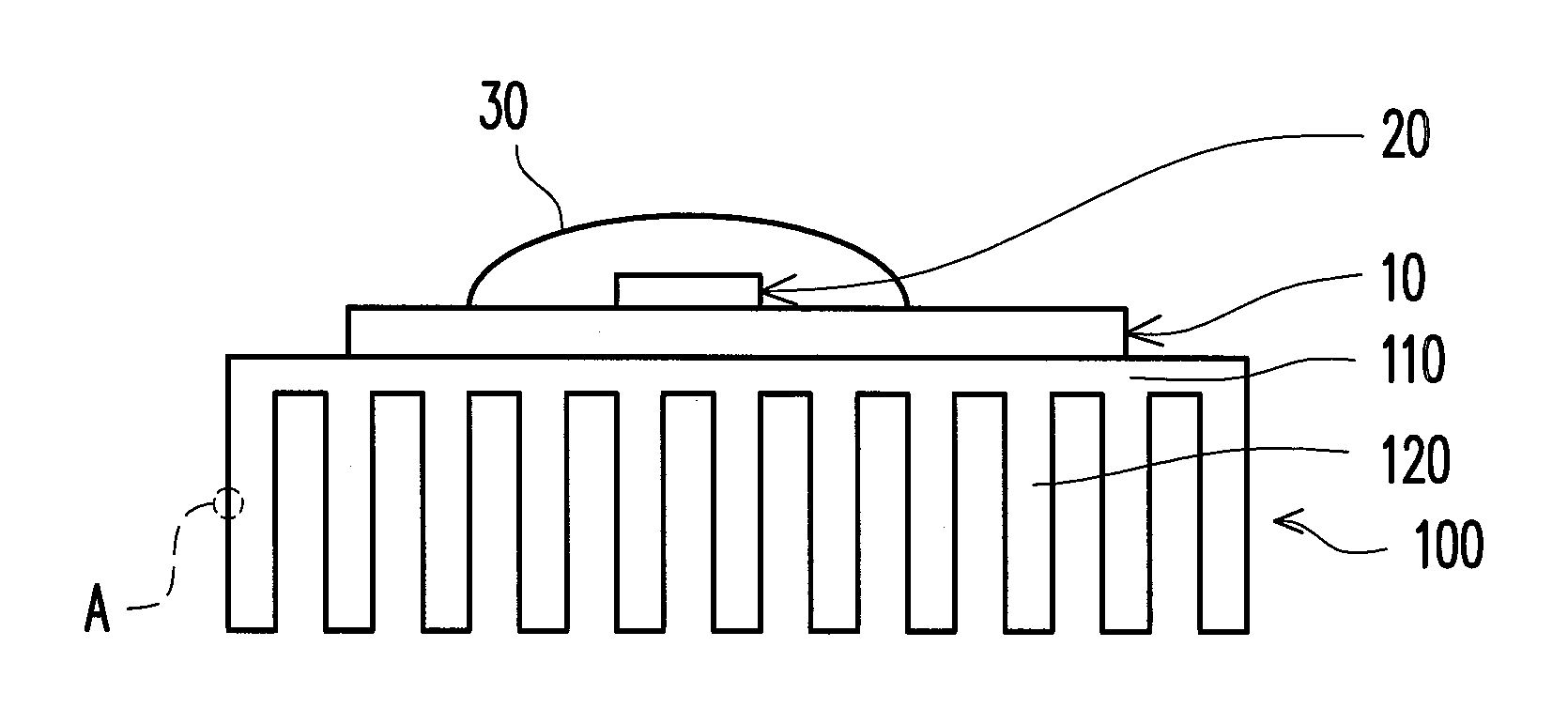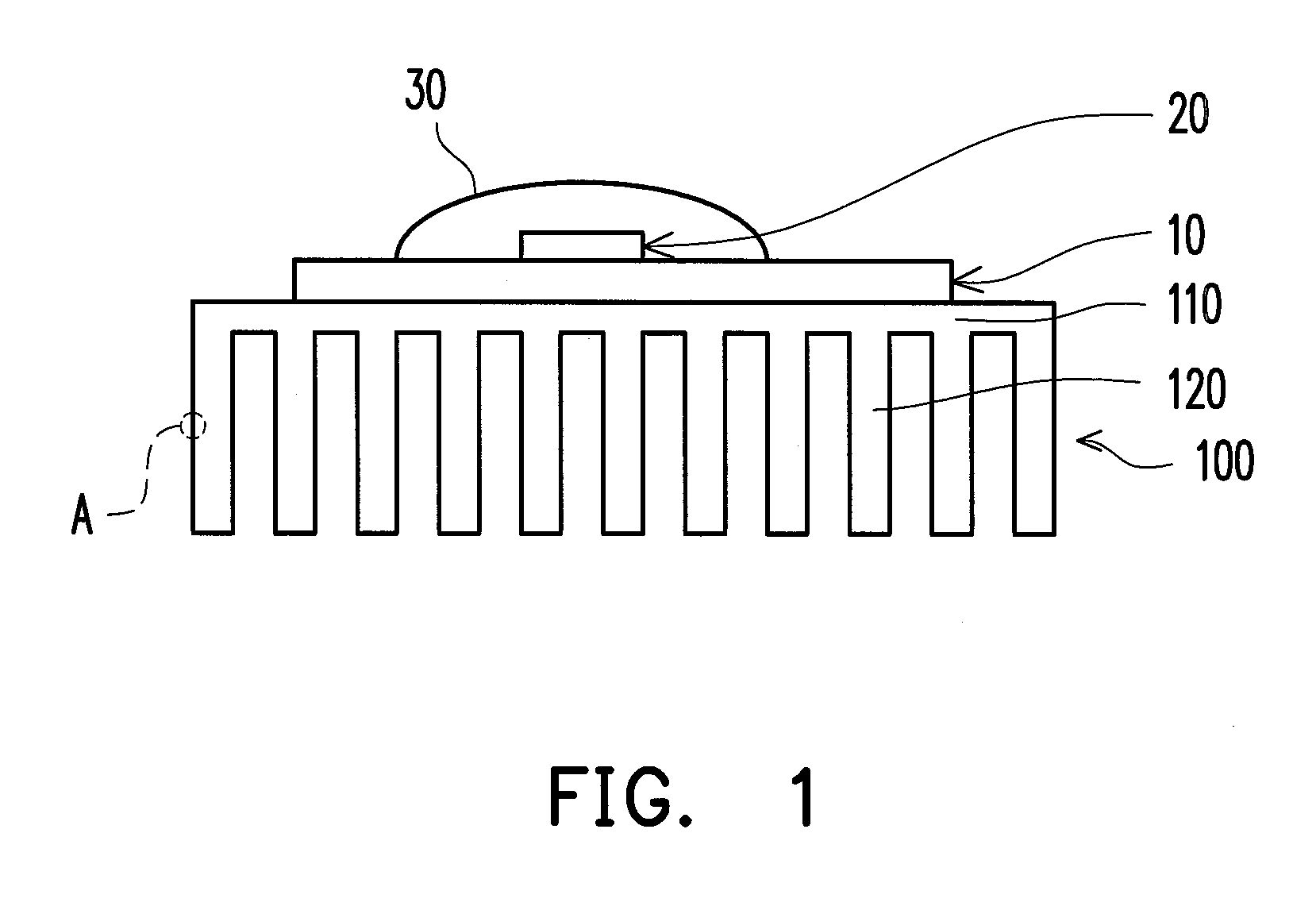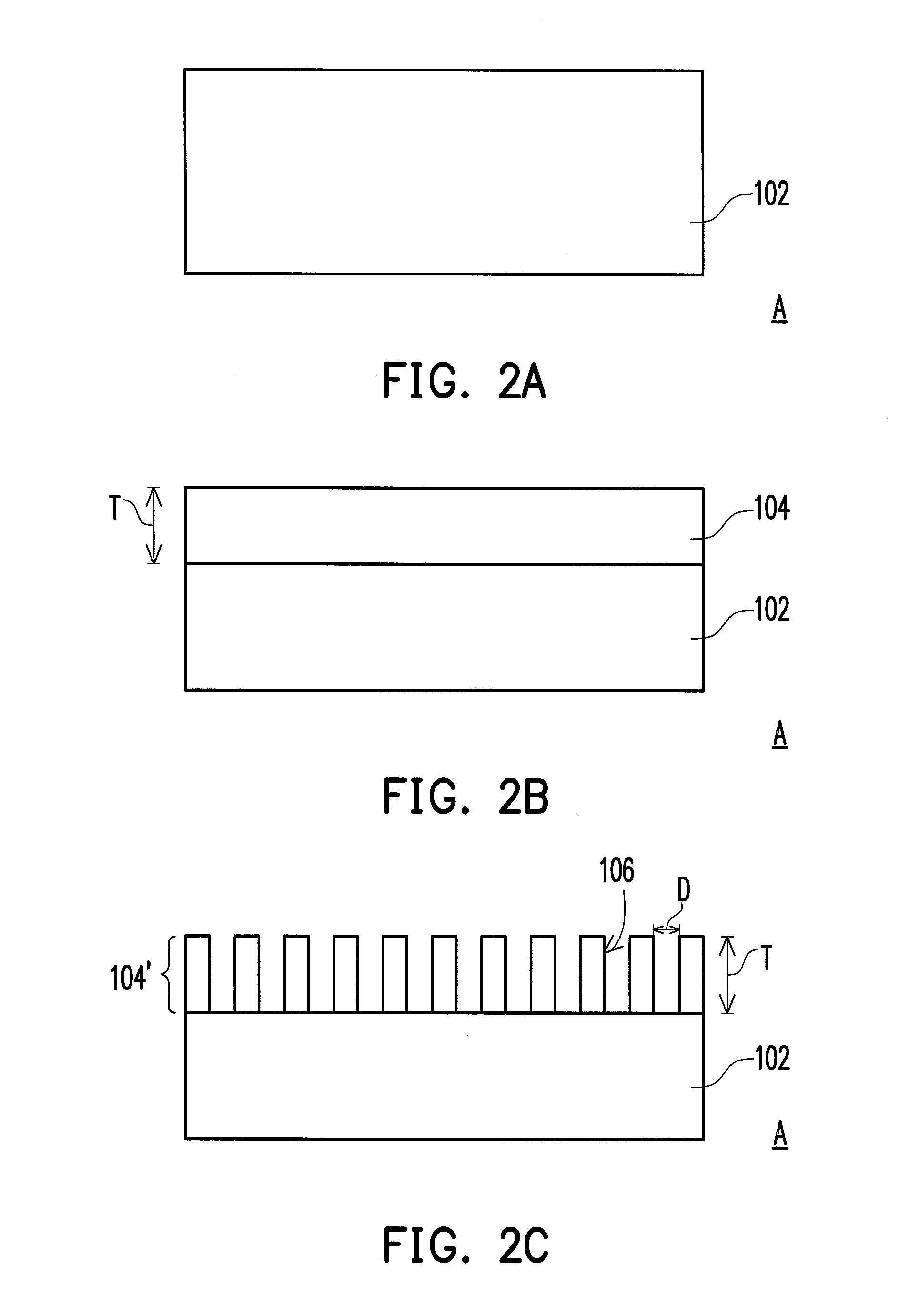Heat sinking element and method of treating a heat sinking element
a heat sinking element and heat sinking technology, applied in the field of heat sinking elements, can solve problems such as adversely affecting the reliability of chips, and achieve the effects of reducing the thermal resistance of the heat sinking element, improving the heat dissipation behaviour, and increasing the surface area
- Summary
- Abstract
- Description
- Claims
- Application Information
AI Technical Summary
Benefits of technology
Problems solved by technology
Method used
Image
Examples
Embodiment Construction
[0023]FIG. 1 illustrates a usage of a heat sinking element according to an embodiment of the disclosure. Referring to FIG. 1, a heat sinking element 100 is, for example, configured on one side of a substrate 10, and the other side of the substrate 10 is, for example, configured with a chip 20. The chip 20 is further covered by a polymer colloid 30. The chip 20 in FIG. 1 is, for example, an LED chip, but the disclosure is not limited to this and the chip 20 may also be other driving chip. In addition, the heat sinking element 100, for example, includes a seat 110 and a plurality of fins 120 connected to the seat 110, but in other embodiments of the disclosure, the heat sinking element 100 may also be a slug without the fins 120. That is, the heat sinking element 100 in FIG. 1 is only exemplary but not intended to limit the shape thereof.
[0024]The chip 20 and the heat sinking element 100 are respectively configured on two opposite sides of the substrate 10, so the heat sinking element...
PUM
| Property | Measurement | Unit |
|---|---|---|
| diameter | aaaaa | aaaaa |
| thickness | aaaaa | aaaaa |
| thickness | aaaaa | aaaaa |
Abstract
Description
Claims
Application Information
 Login to View More
Login to View More - R&D
- Intellectual Property
- Life Sciences
- Materials
- Tech Scout
- Unparalleled Data Quality
- Higher Quality Content
- 60% Fewer Hallucinations
Browse by: Latest US Patents, China's latest patents, Technical Efficacy Thesaurus, Application Domain, Technology Topic, Popular Technical Reports.
© 2025 PatSnap. All rights reserved.Legal|Privacy policy|Modern Slavery Act Transparency Statement|Sitemap|About US| Contact US: help@patsnap.com



